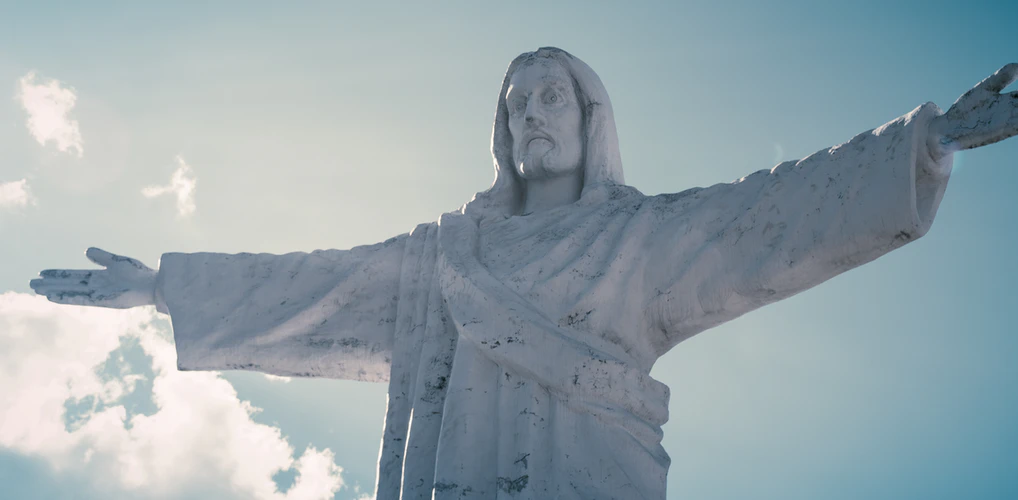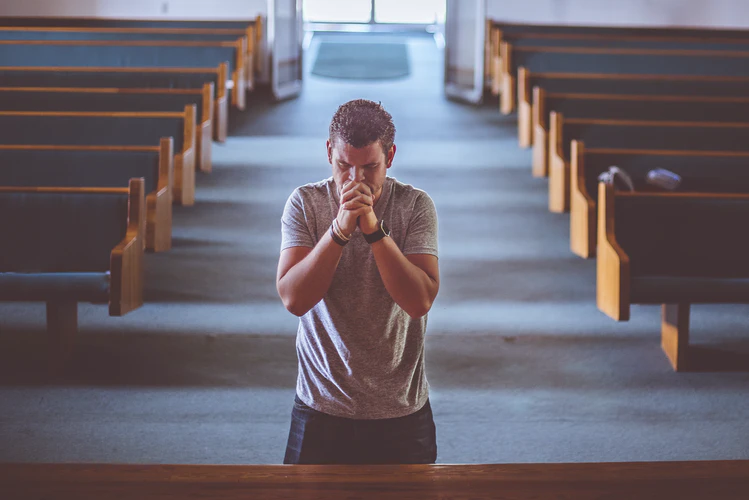Have you ever wondered what a visit to Heaven would be like?
That single experience could reshape the trajectory of one’s future on Earth. For most of
humanity, that would only ever be an impossible daydream. For one such member, however, it
became an undeniable reality.
Meet Felix Halpern, a Messianic Jewish rabbi whose brush with death rewrote his heart’s cry.
One medical mistake could have cost him his life, but it bought him a round-trip ticket to the
throne room.
What Happened to Halpern?
Rabbi Halpern had done an exceedingly ordinary act: trusted a doctor’s orders. Having visited a
clinic and been prescribed an exorbitant amount of medication, he consumed it without
question.
The problem? Within twenty-nine days, Halpern had accidentally taken seven and a half
month’s worth of medicine. The effects were inescapable – and fatal.
His symptoms, which included excruciating chest, back, and muscle pain, one day reached an
apex. As the clock struck three, Halpern collapsed onto his couch and breathed his last. “My
soul stepped out of my body”, Halpern recalls, and “began to rise in the spiritual realm”.
What happened then was a tragedy. What happened next was a miracle.
An Audience of One
Have you ever heard people speak of “the light at the end of the tunnel”? It could be the
pleasant finale to a metaphorical problem, or the destination at the end of one’s life.
In this case, that light was literal – and living. Halpern describes the moments following his
death as a journey through a white-lit passageway into the throne room of God.
“A ring of fire encircles the throne,” described Halpern, complete with “ripples of glory”. Beneath
the fire sat a sea of crystal that separated the layers of Heaven. And from the throne itself
flowed a river with water more clear than any on Earth. Such glory overwhelmed his sight, to the
point he had to shield his eyes.
But more than the visual beauty, Halpern tells of the life-giving nature of the environment itself.
All the pain endured in the past month dissipated into “an incredible peace and joy”.
However, despite the temporary pleasure, God postponed Halpern’s permanent residence in
Heaven. Like a modern-day Ezekiel, Halpern felt the winds of God blow into him, over his dry
bones, and fill him with breath again: “The Lord had brought me back to life”.

A Return to Reality
How does one resume normality after witnessing divinity? According to Halpern, the “man I was
before this…is no more”. Before he figured out the future, he had one destination in mind: the
doctor’s office.
The same doctor that could have doomed Halpern had a miracle on his hands. Halpern, a man
nearing seventy, possessed “the blood work of a young stag”. The supernatural made itself
evident in the medical.
But Halpern knew this news could not be contained to one clinic. It needed to be spread around
the world. Now, he had a new mission: to take what this experience had taught him and convey
it to others who needed it.
The first lesson? To transfer the glory of Heaven to Earth.
From Glory to Glory
No eye has seen nor ear has heard what’s in store for us on the other side of the Veil.
That verse can reassure us in theory, but it can be difficult to implement in practice. If we fail to
fathom Heaven, imagine the difficult those outside the faith would endure in doing so.
Conveying the glory of God is no simple task, but Halpern believes “it’s [his] life’s call”.
Each of us, in fact, are called to it. Yet we fail to pursue it with fervency more often than not
–sometimes, until it is too late.
We all know the unspoken truth: tomorrow is ever guaranteed. The weight of that fact, however,
only hits home in experiences like the Rabbi’s. Now, as he explains, “there’s an urgency for
people”.
If his life ended without warning, so too can anyone else’s – and their residence in eternity is not
as guaranteed. Halpern understands that the leniency with which humanity so often acts cannot
lead us any longer. The gospel is needed, and it’s needed now. In the words of the Rabbi
himself, we “cannot rest until the message is constantly declared”.
But this experience did not only alter his interactions with non-believers. Just as much as it
radicalized his evangelism to others, it revolutionized his relationship with God and His people.

From Requests to Reverence
When you start to pray, what is the first thing you say? If we’re honest, our prayers begin with a
request to God. “I want”. “I seek”. “I need”.
Halpern admits to this commonplace structure in his own prayer life prior. “We are to go and tug
on the hem of His garment,” Halpern confirms. Yet an overabundance of thankless
codependence “breeds…a needy spirit”.
Our souls, however, worry that our needs will not be met should we not put them before God at
every opportunity. Here’s the catch: Halpern claims that his prayers have been answered! Only
that those requests are responded to as Halpern “remain[s] in exaltation and [gives] Him glory”.
We do not need to decide to pray one or the other. Both are exemplified in the Bible. Both are
needed. But what is the balance between them? While there’s no surefire formula, Halpern
recommends 80% of one’s prayers be magnification and only 20% be supplication.
There is a need in our world. A need for gratitude. For thankfulness. For reverence. Although
that need is immeasurable in our prayer lives, Halpern discovered its lack in one other important
area: our appreciation of creation.
From This World to the Next
Everyone on Earth is constantly inundated by our planet’s beauty, hand-sculpted by our Creator
Himself. But how often do we take the time to revel in the individual nuances of that creation?
More importantly, how often do we allow the art to teach us about the Artist?
Coming back from another world would undoubtedly shift one’s perspective of our own. For the
first time, Halpern understood what the Bible meant when it said that “we are in this world, but
not of it”. It did not, however, make him view Earth as lesser – only as a means of learning about
its Maker.
From witnessing sunrises to washing in rainfall, from examining acorns to inspecting insects,
each element of nature displays “the beauty of God’s hands”. Halpern is in no rush to overlook
the supernatural essence cemented into every cell of creation.
But there is one important caveat: “I do not worship nature,” Halpern assures, “I worship the
Creator of it”. Nature, like all things, is a lens through which we witness the Lord.
Rabbi Halpern now sees the world through all of these lenses, while clinging tightly to none of
them. Now, his eyes are focused solely on the Lord – and on the mission He’s entrusted
Halpern with.

From evangelism to gratitude to inspection, Halpern’s testimony can lay to rest our old world
view and revitalize in us an urgency for what is eternally important.
Share with us: how has this story encouraged, convicted, or challenged you in your walk with
God?



